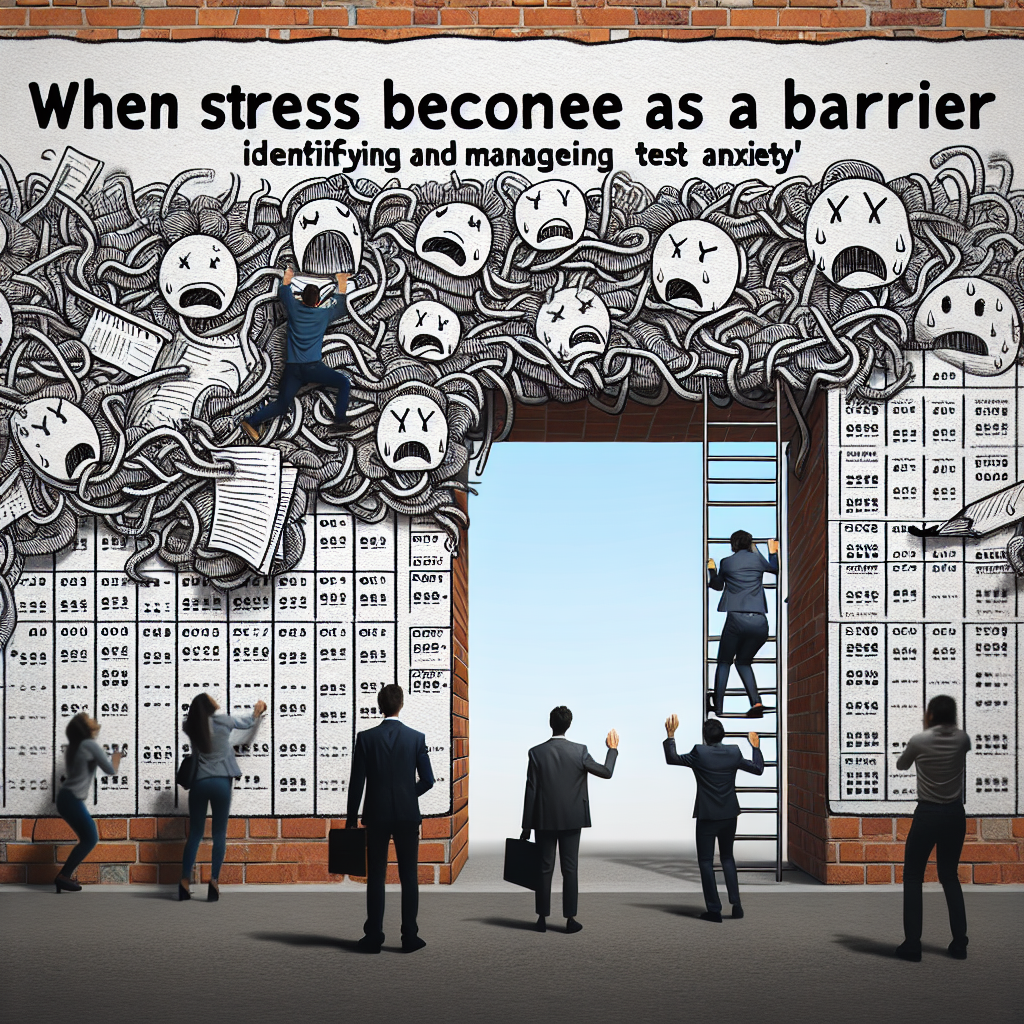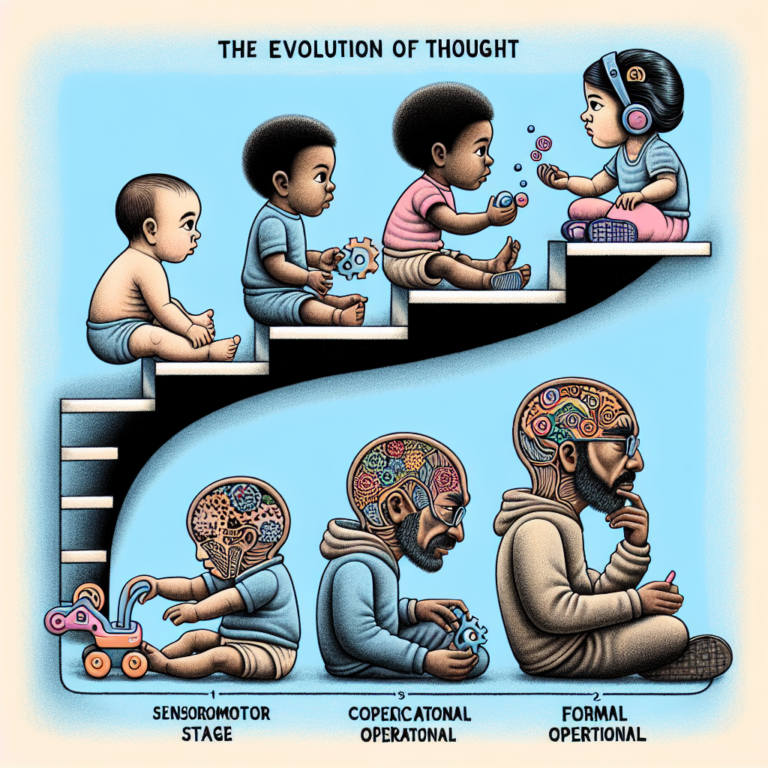
Introduction
Imagine standing in front of an exam room, your heart racing, palms clammy, and thoughts swirling like a chaotic storm. Anxiety grips you, transforming what should be a routine test into a monumental hurdle. If this sounds familiar, you’re not alone. Test anxiety is a common experience for many students and professionals alike. Identifying and managing this type of anxiety is crucial because, as the saying goes, "When stress becomes a barrier, your potential is limited." This in-depth article delves into the nature of test anxiety, providing valuable insights and actionable strategies for overcoming it.
Understanding Test Anxiety
What is Test Anxiety?
Test anxiety is a type of performance anxiety that can manifest in various physiological, emotional, and cognitive symptoms. These symptoms can range from nervous stomach aches and sweaty palms to racing thoughts and self-doubt, ultimately hindering performance. Understanding the roots of test anxiety is essential before tackling its management.
The Physiology of Stress
When faced with stress, our body activates the "fight or flight" response, releasing hormones like cortisol and adrenaline. While these can be beneficial in short bursts, prolonged exposure can lead to burnout and decreased cognitive function—critical elements in a testing environment.
Signs and Symptoms of Test Anxiety
- Physical Symptoms: Nausea, headaches, rapid heartbeat.
- Emotional Symptoms: Fear of failure, feelings of inadequacy.
- Cognitive Symptoms: Difficulty concentrating, racing thoughts, memory lapses.
When Stress Becomes a Barrier: Recognizing Factors Contributing to Test Anxiety
Personal Factors
Identifying individual triggers is pivotal. Personal experiences, past exam performances, and even family expectations can heighten anxiety levels.
Environmental Factors
The testing environment can significantly impact feelings of anxiety. Factors such as noise, large crowds, or unfamiliar settings can contribute to overwhelming anxiety.
Academic Pressure
In today’s high-stakes educational atmosphere, the pressure to perform well is at an all-time high. Understanding this societal context is key to recognizing the roots of anxiety.
Case Study: Maria’s Journey Through Test Anxiety
Maria, a college sophomore, faced crippling anxiety during exams despite being a diligent student. After seeking help, she learned to identify her triggers—high expectations from family and fear of disappointing friends. By working with a counselor, she implemented relaxation techniques, such as mindfulness and deep breathing exercises. Now, with her anxiety managed, Maria feels empowered and ready to tackle any test with confidence.
Analysis of Maria’s Case
Maria’s transformation highlights the power of self-awareness and proactive strategies. Her story reinforces the idea that when stress becomes a barrier, recognizing personal triggers and seeking help can facilitate overcoming anxiety.
Strategies for Managing Test Anxiety
Understanding and Identifying Triggers
- Self-reflection: Keep a journal to understand when and why anxiety spikes.
- Personal history: Analyze past experiences to pinpoint what triggers your anxiety.
Preparation Techniques
- Study Early: Start your revisions well ahead of time, breaking down material into manageable sections.
- Practice Mock Exams: Simulate the test environment to reduce anxiety on the actual exam day.
Relaxation Techniques
- Mindfulness Meditation: Spend a few minutes each day focusing on your breathing and calming your mind.
- Physical Activity: Regular exercise helps release tension and boosts mood.
Cognitive Restructuring
This involves changing negative thoughts into positive affirmations. Instead of “I’ll fail,” try “I’m prepared and capable.”
Seeking Professional Help
If anxiety becomes overwhelming, consider speaking with a mental health professional who can offer tailored strategies, such as cognitive-behavioral therapy.
Chart: Common Techniques to Manage Test Anxiety
| Technique | Description | Effectiveness |
|---|---|---|
| Mindfulness Meditation | Focuses attention on the present moment | High |
| Physical Exercise | Involves regular physical activity | Moderate to High |
| Study Groups | Collaborative learning with peers | High |
| Professional Counseling | Structured therapy to manage stress | Very High |
| Journaling | Documenting thoughts to identify triggers | Moderate |
Enhancing Test Day Preparedness
Arriving Early
Ensure you arrive with plenty of time to acclimate to the environment, reducing last-minute stress.
Visualization Techniques
Visualize success before entering the testing room. Imagine yourself calmly answering questions and feeling a sense of accomplishment.
Healthy Eating and Hydration
What you consume leading up to an exam can significantly affect your performance. Eat nutritious meals and stay well-hydrated.
The Role of Support Systems
Building a network of supportive friends, family, and faculty can act as a safety net. Sharing experiences with others can mitigate feelings of isolation and anxiety.
Conclusion
Test anxiety is a formidable barrier that affects countless individuals. By identifying the contributing factors and employing effective management strategies, you can turn anxiety from a paralyzing force into a stepping stone for success. Remember, when stress becomes a barrier, it’s not just about managing nerves—it’s about reclaiming your confidence and unlocking your full potential.
Actionable Insights
- Keep a journal to track your anxiety triggers and management strategies.
- Don’t hesitate to reach out for professional help if needed.
- Use mindfulness practices to create a calm mindset leading up to exams.
FAQs
1. What causes test anxiety?
Test anxiety can stem from personal factors like fear of failure, environmental influences such as intimidating testing rooms, and societal pressures related to academic performance.
2. How can I prepare better to combat test anxiety?
Preparation can include starting studying early, practicing mock exams, and utilizing relaxation techniques like deep breathing or mindfulness meditation.
3. Is it normal to feel anxious before a test?
Yes, feeling anxious before a test is a normal response. However, it becomes problematic when it interferes with your ability to perform well.
4. How can I manage anxiety on the day of the test?
Consider visualization techniques, healthy eating, staying hydrated, and arriving early to acclimatize to your environment.
5. When should I seek professional help for test anxiety?
If your anxiety consistently interferes with your academic performance or daily life, seeking help from a mental health professional is advisable.
By equipping yourself with the insights and strategies outlined above, you can learn to manage test anxiety effectively. Remember, the key is not just to perform but to embrace each test as an opportunity for growth.














